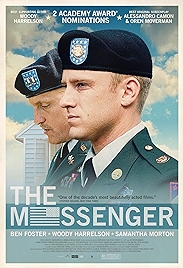A movie for every day of the year – a good one
13 March
Henry Shrapnel dies, 1842
On this day in 1842, Major General Henry Shrapnel, British army officer, died aged 80, at his home, Peartree House, Southampton, UK.
It was he who is supposed to have invented the “spherical case” bomb, which exploded in mid-air (there is every likelihood that it was in fact a French engineer called Bernard Forst de Bélidor). A hollow cannonball filled with lead shot, it was designed to inflict massive damage on people.
Until then cannonballs had been solid and had achieved maximum impact when used against ships – it was the massive splintering of oak that caused death and injury to the sailors, rather than the ball itself.
The new device was first demonstrated at the time of the siege of Gibraltar (1779-1783) but became decisive at the battle of Fort New Amsterdam (Surinam) in 1804.
As a result of this victory, a delighted British government granted Shrapnel an annual pension. Shells made according the Shrapnel principles continued to be manufactured only until the end of the First World War, though the fragmentation resulting from the explosion of artillery shells, and fragmentation in general, has borne Shrapnel’s name ever since.
The Messenger (2009, dir: Oren Moverman)
The film that seemed designed to welcome Ben Foster into the place next to current hipster princeling Ryan Gosling – as the thin-faced Steve McQueen and Paul Newman of our time – is almost a two-hander.
Though here Foster is paired up with Woody Harrelson, to play army officers whose duty it is it convey “the message” to the next of kin of people who have died in conflict.
It’s a story told in episodes, the effects of the news registering on the faces of one hapless character after another – Steve Buscemi blurs on, Samantha Morton hangs around a bit longer – while in fact the film is subtly dealing with the effects of grief on the men who have to deliver the news, how it forces them to confront mortality at one remove, and in some way spooks them – the tough outer shell, the gallows humour.
If Foster, the war hero properly pissed off at having to run around like some grim postman, is the latest iteration of the seriously moody actor (Gosling, Ed Norton) going all the way back to De Niro if not Brando, then Harrelson has decided to channel Robert Duvall in his Apocalypse Now pomp – tight, spruce, not to be messed with.
And that’s why the film is worth watching, to see two actors more or less playing other actors in a series of tough little scenes of intense emotion, and doing it brilliantly.
The film meanwhile, directed by a debuting Oren Moverman, whose Rampart (Harrelson as a Dirty Harry figure caught out of time) reinforces the idea that there’s a serious bit of 1970s worship going on with its choice of close shots, its human focus, its mood music.
That’s its downside too – that it is a mood piece which starts to wander once it’s established itself. Plot junkies might want to look elsewhere.
Why Watch?
- The first film by Oren Moverman
- Foster and Harrelson genuinely work well together
- Harrelson in Duvall-mode shouts “Charlie don’t surf” at one point
- Bobby Bukowski’s 1970s cinematography
The Messenger – at Amazon
I am an Amazon affiliate
© Steve Morrissey 2014

